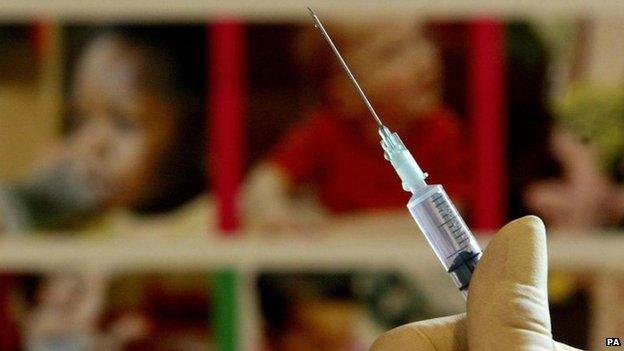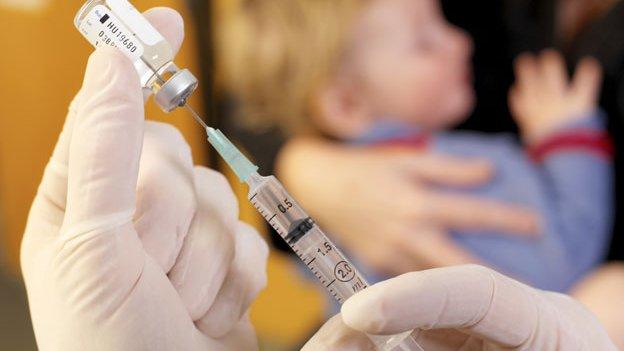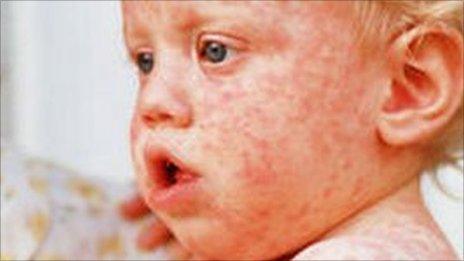MMR advice after threefold increase in mumps cases
- Published

Health officials have advised those at risk to make sure they have the MMR vaccine
There has been a threefold increase in the number of cases of mumps in Scotland in the first three weeks of this year.
A total of 98 cases have been reported, compared to 36 for the whole of January 2014.
The majority of those infected are young adults in Glasgow, Lanarkshire and Edinburgh.
Health officials have urged anyone aged between 20 and 35 to ensure they are fully vaccinated against the virus.
Mumps is highly infectious and can be spread over a wide area by a cough or a sneeze from an infected individual.
It is particularly common in student populations because of greater social mixing.
The virus can lead to fever, headache and painful, swollen glands in the face, neck and jaw. In serious cases it can result in permanent deafness, viral meningitis and encephalitis.
Health officials stressed it was normally a mild illness but said immunisation was important to prevent complications.
Serious complications
Clinical director of Health Protection Scotland, Dr Syed Ahmed said young people in particular needed to ensure they have had two doses of the MMR vaccine.
He warned: "Mumps can lead to some complications including deafness, viral meningitis, it can affect the glands and ovaries and testicles which might lead to some problems with fertility.
"It can also lead to swelling of the neck, so it can lead to some nasty complications which people shouldn't have to endure if they get vaccinated fully."
Dr David Cromie, NHS Lanarkshire consultant in public health medicine, said: "Mumps is a viral disease, usually experienced during childhood, but people of any age can be affected if they have not had the illness before or have not been fully vaccinated.
"Symptoms can include fever, headache, swelling of one or both cheeks or sides of the jaw, and swollen glands.
"It's an infection that can have serious complications including affecting the brain and, in very rare cases, can lead to fatal complications. If you have any of the symptoms, contact your GP. Tests can be carried out to confirm the illness."
Two doses
The MMR vaccine, routinely given to young children, is said to be the most effective way to protect against mumps.
Anyone unsure about their vaccination history is being urged to check with their GP.
"Two doses of the MMR vaccine provide a 90% chance of protection," Dr Cromie added.
"People who are currently between 20 and 35 years of age, born between 1980 and 1995, will tend not to have experienced natural mumps infection.
"So, unless they have had two doses of the MMR vaccine, these people will be at a higher risk of suffering from mumps, particularly when the mumps illness is circulating in the community, as at present, or when travelling abroad to countries where mumps spreads more commonly.
"Those who have had one dose of the MMR vaccine only need one more dose to complete the course."
- Published2 May 2013

- Published27 November 2012

- Published13 January 2011